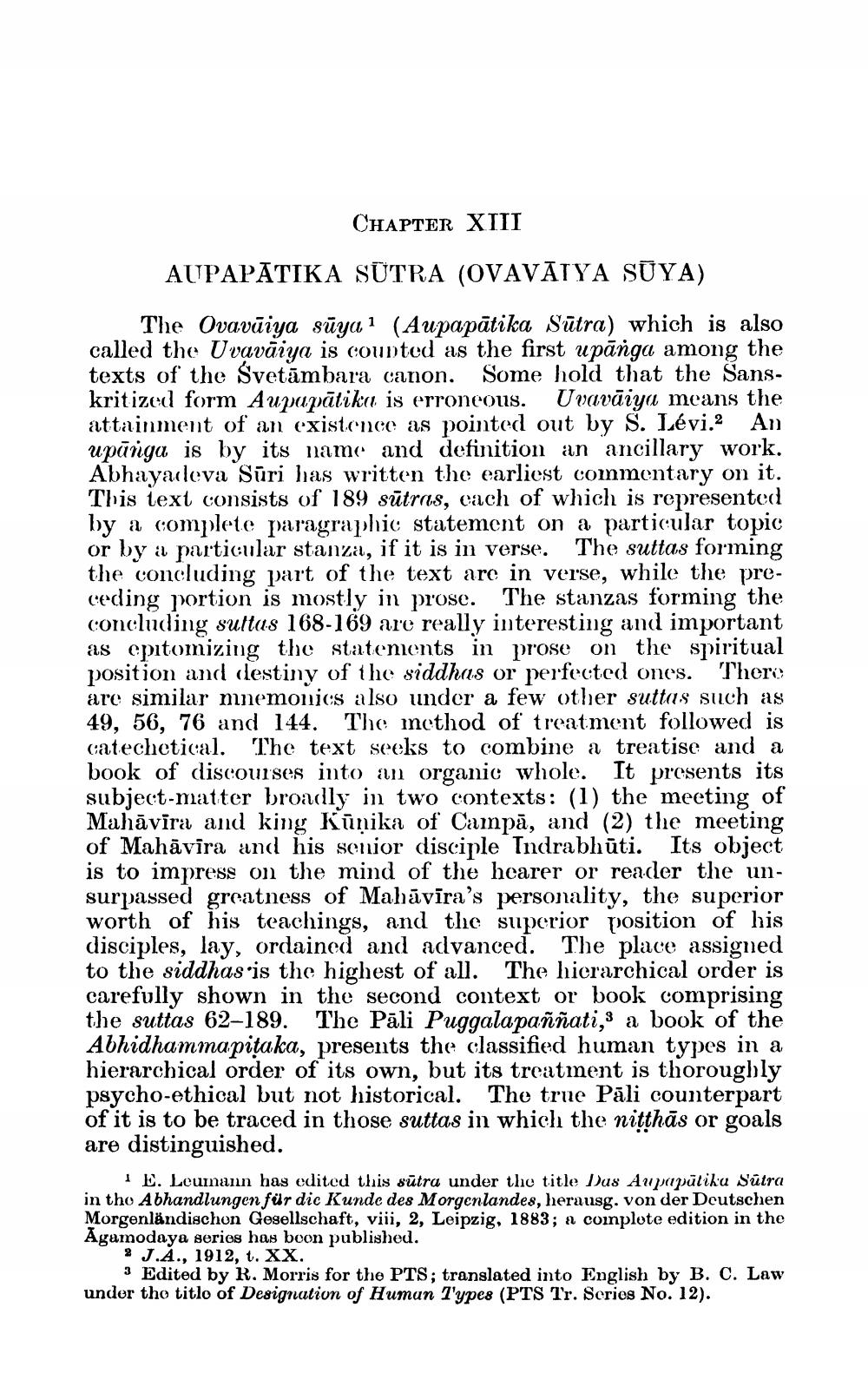________________
CHAPTER XIII
AUPAPĀTIKA SÜTRA (OVAVĀIYA SŪYA)
The Ovavaiya suya1 (Aupapātika Sutra) which is also called the Uvavaiya is counted as the first upanga among the texts of the Svetambara canon. Some hold that the Sanskritized form Aupapātika is erroneous. Uvavaiya means the attainment of an existence as pointed out by S. Lévi. An upanga is by its name and definition an ancillary work. Abhayadeva Suri has written the earliest commentary on it. This text consists of 189 sutras, each of which is represented by a complete paragraphic statement on a particular topic or by a particular stanza, if it is in verse. The suttas forming the concluding part of the text are in verse, while the preceding portion is mostly in prose. The stanzas forming the concluding suttas 168-169 are really interesting and important as epitomizing the statements in prose on the spiritual position and destiny of the siddhas or perfected ones. There are similar mnemonics also under a few other suttas such as 49, 56, 76 and 144. The method of treatment followed is catechetical. The text seeks to combine a treatise and a book of discourses into an organic whole. It presents its subject-matter broadly in two contexts: (1) the meeting of Mahavira and king Kūnika of Campa, and (2) the meeting of Mahāvīra and his senior disciple Indrabhūti. Its object is to impress on the mind of the hearer or reader the unsurpassed greatness of Mahavira's personality, the superior worth of his teachings, and the superior position of his disciples, lay, ordained and advanced. The place assigned to the siddhas is the highest of all. The hierarchical order is carefully shown in the second context or book comprising the suttas 62-189. The Pali Puggalapaññati, a book of the Abhidhammapitaka, presents the classified human types in a hierarchical order of its own, but its treatment is thoroughly psycho-ethical but not historical. The true Pali counterpart of it is to be traced in those suttas in which the niṭṭhās or goals are distinguished.
E. Leumann has edited this sutra under the title Das Aupapātika Sūtra in the Abhandlungen für die Kunde des Morgenlandes, herausg. von der Deutschen Morgenländischen Gesellschaft, viii, 2, Leipzig, 1883; a complote edition in the Agamodaya series has been published.
2 J.A., 1912, t. XX.
3 Edited by R. Morris for the PTS; translated into English by B. C. Law under the title of Designation of Human Types (PTS Tr. Series No. 12).




